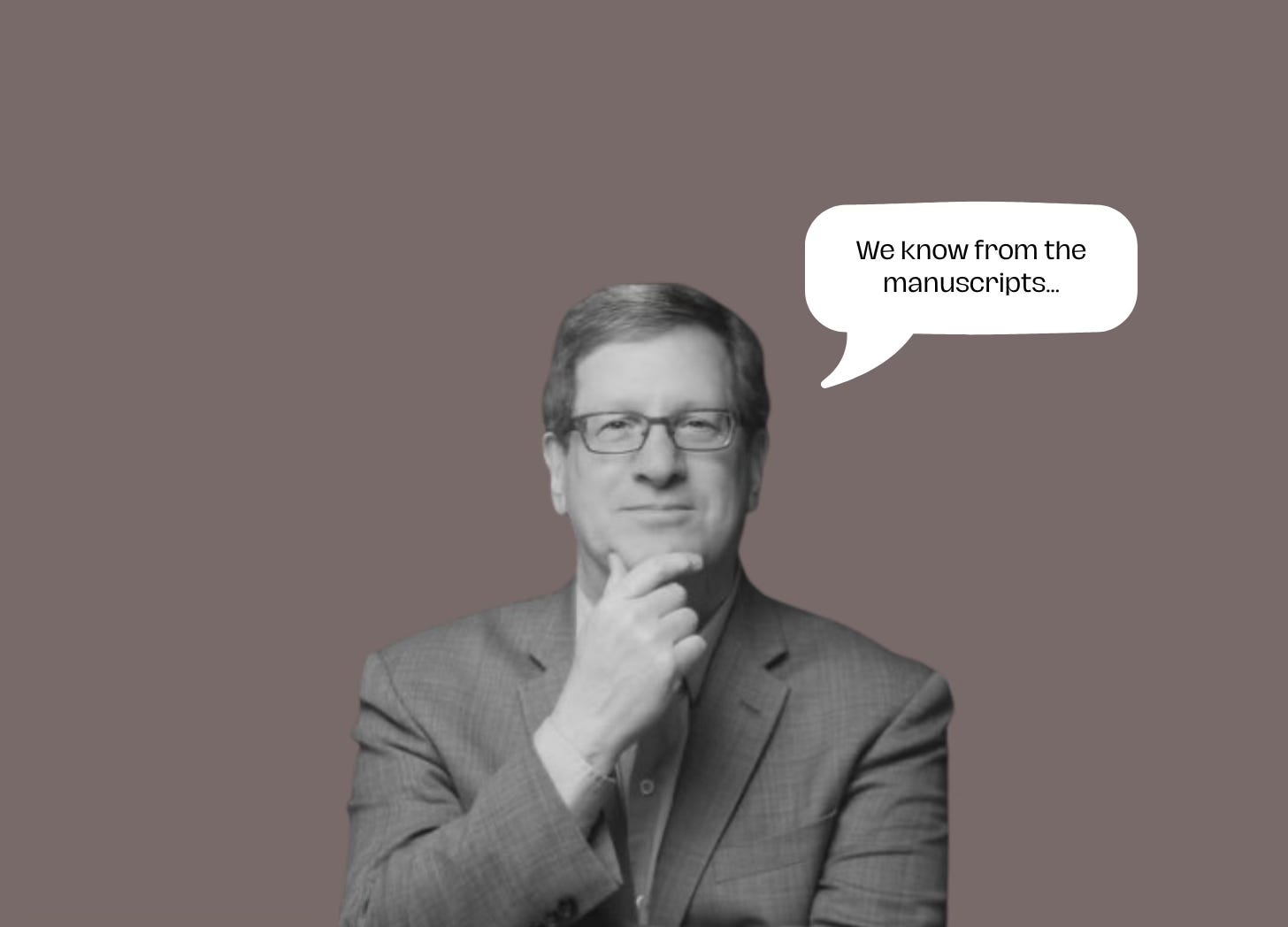A Case for Christ (-like Ambiguity)
Traditional Inerrancy and a Different Way

If you've been savoring Spill the Tea for the last three weeks and you're still here, kudos to y
ou - I think we're officially friends now! Spill the Tea is like a peek into the constantly simmering pot of my mind, so if you can handle my long-winded musings, you might just be able to handle me too. 🙂
Let's whisk through a quick recap:
The clobber verses are not clobber verses. The term "clobber verse" denotes that the Bible somehow has something to say about homosexuality. In the August 1st Spill the Tea, I make an argument that the Bible neither condemns nor condones homosexuality and that we use conservative hermeneutics to try to find progressive ideas in Scripture. We don't have to do that!
New Testament authors had a certain way of talking and writing. We don't have to guess though; there is literature created by these authors' contemporaries that teaches us what the literary style is. We can also see that people like Paul were influenced by the dominant worldview. In this case, Paul uses language that is heavily dependent on understanding Stoic philosophy.
In the August 15th Spill the Tea, I dove even deeper by going into Mesopotamian, Middle Assyrian, and Israelite culture to understand what Leviticus actually says. In short, we have to understand how those ancient cultures viewed hegemony.
We need to understand culture in order to interpret. While that statement is true, I also believe that we don't need theologians to tell us. We actually do this all the time intuitively. Like how we all agree that we should probably not say about our enemies, "A blessing on him who seizes your babies and dashes them against rocks!"
I think it boils down to the doctrine of Inerrancy. Christians who embrace inclusivity while reading scripture typically approach the text with flexibility, while those who adhere strictly to every word often subscribe to the doctrine of inerrancy.
The doctrine of inerrancy, unlike many other doctrines is not logical, not historical, and is only used for oppression.
Doctrine of Inerrancy: The belief that the Bible, in its original manuscripts, is without error in all its teachings.
A Pinch of Personal History
I've always had a bone to pick with the doctrine of inerrancy, so I may not be the most impartial judge when it comes to this topic. It's been a source of friction in my family growing up. My parents were (and likely still are) firm believers of inerrancy, and we often clashed. I once asked my father why he believed in inerrancy, and he replied, "In the beginning was the Word, and the Word was with God, and the Word was God." I can't say for sure, but that might have been the moment I realized my parents didn't have all the ingredients for a foolproof argument.
Keep reading with a 7-day free trial
Subscribe to Like Quiche to keep reading this post and get 7 days of free access to the full post archives.



